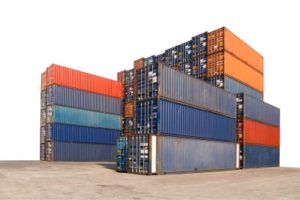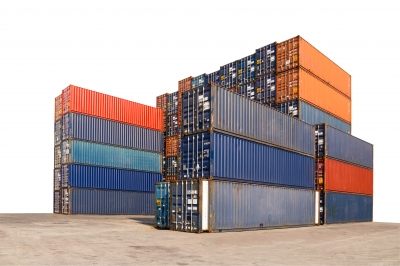 The Philippine Bureau of Customs (BOC) has reconstituted a special committee that used to speed up the disposal of abandoned and overstaying containers.
The Philippine Bureau of Customs (BOC) has reconstituted a special committee that used to speed up the disposal of abandoned and overstaying containers.
The special team—Committee for the Disposal of Abandoned and Overstaying Shipments (CDAS)—was created under Customs Memorandum Order (CMO) No. 18-2016 and Customs Special Order (CSO) No. 32-2016, both signed by Customs Commissioner Nicanor Faeldon on July 12.
CMO 18-2016 amends two provisions under CMO 11-2000 to allow the group’s reconstitution, while CSO 32-2016 outlines provisions for the new CDAS and its functions.
BOC said the committee was reconstituted “in order to expedite the disposition of all abandoned/overstaying shipments and derive maximum revenues in the disposition thereof.”
Under the special order, Intelligence deputy commissioner Jessie Dellosa has been appointed chairman of the committee while Auction and Cargo Disposal Monitoring Division chief Nanie Kho will be vice chairman.
Members of CDAS include all deputy collectors for operations, all division chiefs of auction and cargo disposal as well as law, the chief of the POCD-POS, and a representative from the information system and technology group. The secretariat will be headed by the Intelligence Group’s (IG) Maria Liza Sebastian.
CDAS’ duties and responsibilities include regular monitoring of abandoned and overstaying shipments, whether stored in private facilities or in government-owned and controlled storage areas, at all ports throughout the country.
The committee will also prioritize the inventory of all overstaying and abandoned shipments to determine “its economic value and utility.”
CDAS should also undertake speedy disposal of abandoned and overstaying containers and adopt measures to prevent their disintegration so as to generate revenues for the government.
Operational provisions under CMO 11-2000 will be adopted to facilitate CDAS’ operations, CSO 32-2016 noted.
To facilitate the team’s work, the chairman is authorized to assign additional members as technical and administrative support staff to the committee, enlist services of the private sector, and use needed BOC facilities and resources.
All district collectors are directed to assist and cooperate with the chairman and CDAS’ representatives in accomplishing their mission.
Earlier, the Association of International Shipping Lines (AISL) reiterated its call for the new leadership of BOC to speed up auction and abandonment procedures for containers belonging to carriers so these can be reused or repositioned in other areas.
“For the lines, speeding up auction sales will assure early return of empty containers to shipping lines. These empty containers are considered ships’ gears and badly needed for the loading of export products,” AISL general manager Maximino Cruz told PortCalls.
In an interview with media on July 20, Dellosa said initial reports showed there are 711 overstaying and abandoned containers at the Port of Manila, and about 1,000 units at the Manila International Container Port. The team is also doing an inventory of other ports and sub-ports.
Dellosa noted, however, that one problem the team sees is the long approval time—usually four months—that the government takes to waive the payment for demurrage for seized cargoes.
Once an abandoned or overstaying cargo is seized by BOC, it becomes government property, and the demurrage incurred by such cargoes—some of which have been impounded for years—should be borne by the government. Dellosa noted that since demurrage payment will come from the government, waiving of such fees is possible.
The IG chief said they will be talking to the Philippine Ports Authority and terminal operators to fast track approval of the waiver of demurrage so BOC can either condemn the cargoes or sell them through auction faster.
Another concern is the long time it takes for service providers to condemn seized cargoes. As an example, Dellosa noted that a container of seized frozen meat takes a week to be condemned, and BOC has to see through the whole process to ensure unfit products don’t enter the market. He said they are looking at accrediting more condemnation companies to further expedite the process. – Roumina Pablo
Image courtesy of satit_srihin at FreeDigitalPhotos.net





